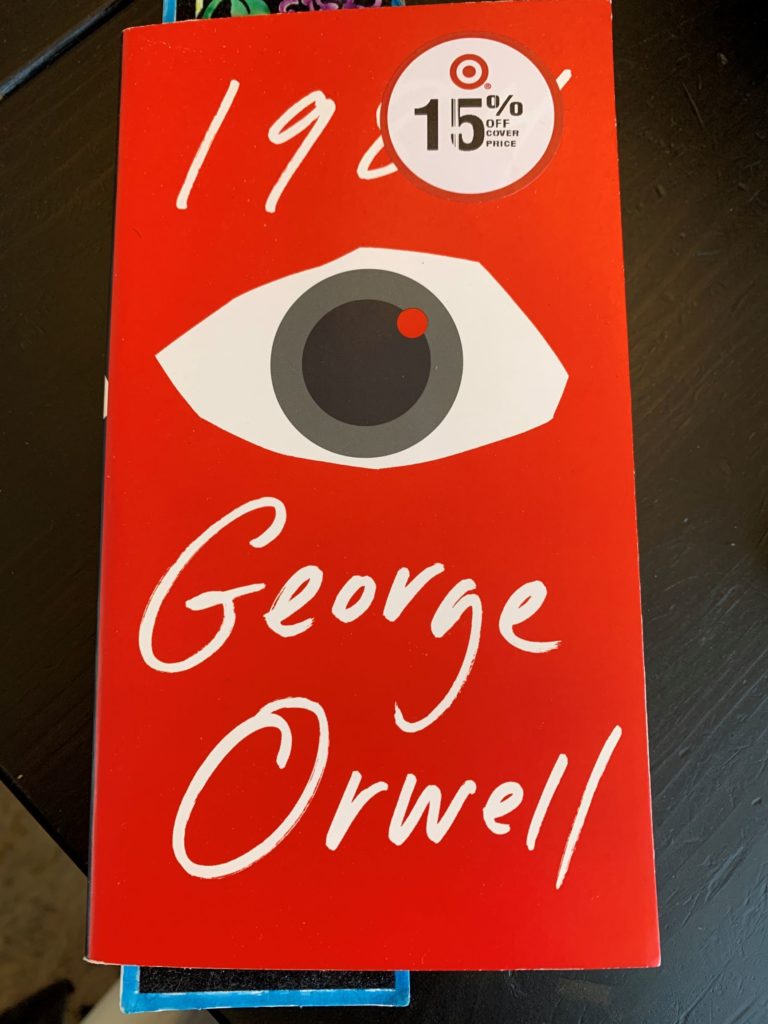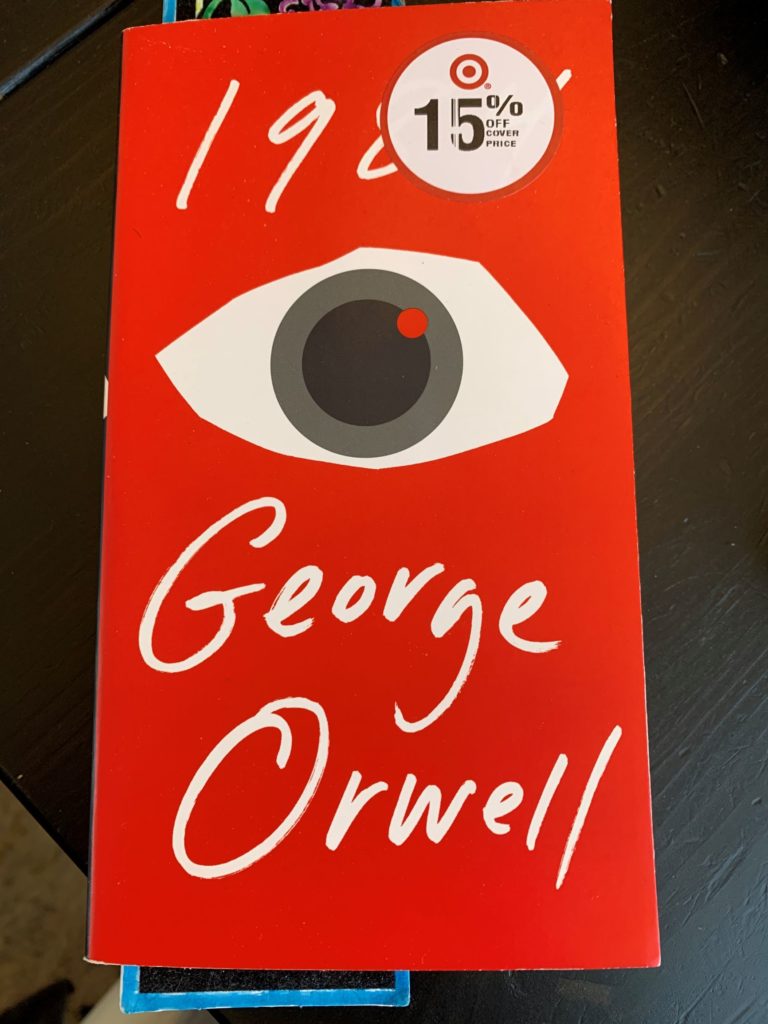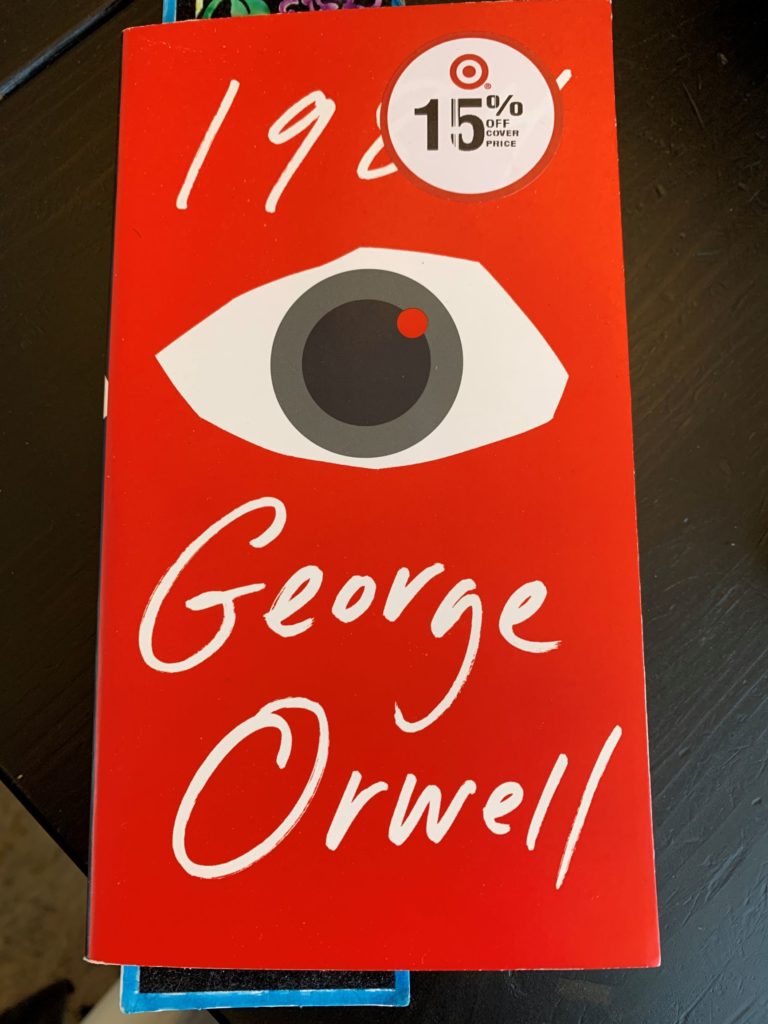Interesting how reflecting impacts your views and potentially changes you. I quickly read this chapter while I was waiting for my son’s Boy Scout meeting to end. It’s short, only ten pages long so it took me 15 minutes to read through it.

This chapter begins with the unexplained disappearance of Syme who first emerged as a character in 1:5. It remains pretty high level in the style of most of the first section of the book where it covers the activities and attitudes of ‘Hate Week’. A smaller part of the chapter is Winston and Julia’s interaction at the antique store apartment.
Real Understanding Requires Context or Experience – There is a conversation that happens between Winston and Julia where he is trying to convince her that history is being changed. It is hard to tell whether she just doesn’t understand or is being coy with her true intentions. But if we take it at face value, Julia just doesn’t seem to understand the concept that the facts as presented change constantly. And by proxy she doesn’t recognize this is the root of the mistrust in any source.
Winston chalks it up to Julia being born before the revolution and not knowing anything other than facts not being facts. I can buy that to a point however Julia seems to be pretty switched on to many of the other moving components of the movement. So, this lack of understanding is a little bit puzzling. The concept is still true; I think that we have all had conversations with the ‘book smart’ people that can recite the facts but not have a clue about the the emotional or mental impact of an event.
Not ever going through a hurricane, I remember people telling me stories of what it was like when Hurricane Hugo landed (1989). When I lived in South Carolina (2001-2004) there was still damage that lingered from the event. At that time, I think that it was still the second most costly Hurricane to hit after Andrew (1992). With over 100 related deaths and the monetary damage, I am sure that lives were changed forever, but I could not really understand what it was like to go through the event.
Living begins when there is no future – This is the one that intrigues me. Winston says that he feels like he is already dead meaning he knows that he has crossed the line and it is only a matter of time before it catches up with him. Because it seems that it is a foregone conclusion that he is going to get caught and there is nothing he can do about it, Winston is going to live in the moment.
My wife has accused me of living in the future. I know that there is at least a degree of truth to that. For instance, if I spend my entire life preparing for potential disaster, I ignore or miss the events of the present. It is the same concept of the bucket list or even the terms “smoke ’em if you got ’em” and “live like you are dying”.
We see the benefits of Winston’s change of philosophy. His physical health has improved as his mental outlook has changed. I am of course not there yet, but we hear stories about peoples acceptance of mortality and it changes their experience of the present.
It is a hard habit to change. I have always had the saver, delayed gratification mentality. It is the reason I worked from the day school ended to the day that school started (seven days) during the summer. It is the reason I dream of tolerating my circumstances so that one day I will be free to pursue what I want to do. It is the reason I am interested in preparedness. It is the reason why I think before I speak. Heck, it is the reason that I have faith.
You can call it ‘in your head’ if you like. I think that it is mostly harmless and defines my character, but there are times that my not being in the moment effects other people, particularly in relationships. That we are not really going to get into today, I just wanted to point out that there can be consequences to that mindset.
End Your Programming Routine: 1984 continues to reveal more than just a cautionary tale. I don’t think that I have done this kind of analysis since college. Not just that, this was a book that I wanted to read and analyze on my own accord and not assigned or graded. It is kind of like rediscovering something revolutionary. The final thing that I want to say today is analyze your behavior to make sure that you are putting the proper emphasis on today versus tomorrow and definitely yesterday.









Recent Comments